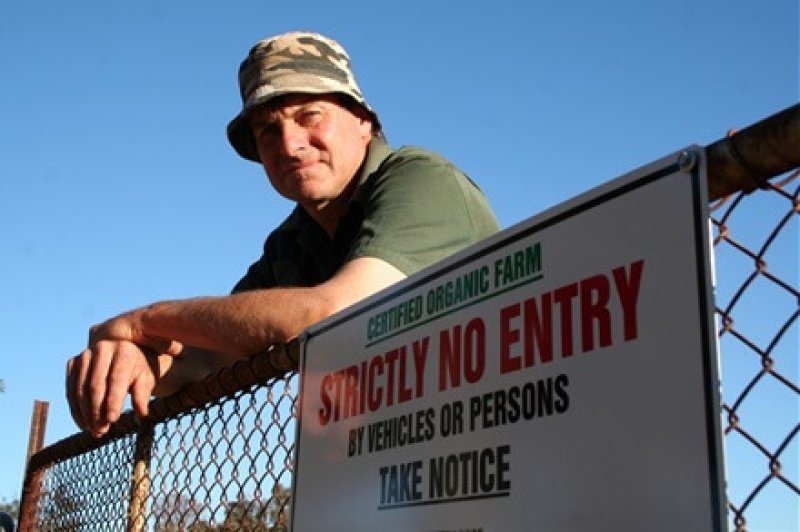The Australian court case over genetically modified canola crops blown into an organic oat and wheat field is reaching it’s final days. In this case Steve Marsh is suing his neighbor Michael Baxter after harvested seed heads from Baxter’s genetically modified canola crop blew onto Marsh’s farm.
The National Association for Sustainable Agriculture Australia’s (NASAA) organic standards were scrutinized by Patricia Cahill, legal counsel for the Baxter, according to Farm Weekly:
Ms Cahill summarized to presiding judge, Kenneth Martin, that the improper construction and ineffective application of NASAA’s questionable standards (and not her client’s actions) should be blamed for the situation plaintiff’s Steve and Sue Marsh found themselves in.
According to her, a reckless, indifferent or cavalier grower (as her client Mr Baxter was referred to by the plaintiff’s counsel) wouldn’t have allowed for the proper buffer zones or told plaintiffs Steven and Sue Marsh of his planting intentions – all of which Mr Baxter did in accordance with his Roundup Ready seed contract.
In her summary Ms Cahill explained the complication between the parties arose when NASAA’s certification regime was laid over the top of Mr Baxter and Mr and Mrs Marsh’s coexistence, especially given the seemingly “moving goal posts” nature of the standards.
She also pointed to NASAA witnesses who struggled to point to a national standard warranting de-certification and gave evidence suggesting that each contamination case was handled and assessed on a case-by-case basis.
Ms Cahill told the judge Mr Baxter grew a crop he was legally entitled to grow and referred to her examination of the national and NASAA organic standards which showed no explicit reference to zero tolerance if read closely and carefully.
Are GMO farmers responsible for a neighbor’s organic crops? Will GMO farmers be limited in where they can grow crops in the future? This case has wide-ranging implications.
Marsh is seeking $85,000 in lost earnings. But the economic impacts of the verdict for the rest of the world are far greater.
Additional Resources:































